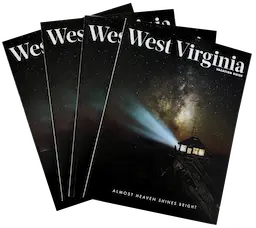Request for Expression of Interest for Economic Impact Research Provider
Purpose
The West Virginia Department of Tourism (“Department”) is soliciting expressions of interest for a vendor to provide Economic Impact Research by evaluating the impact of the travel year 2022 for West Virginia, its nine travel regions, and its 55 counties. The main objective for the Economic Impact Research is to measure the economic impact of tourism to West Virginia in terms of total sales, jobs supported, resident income, and taxes generated. Research should also estimate levels of direct and indirect spending to assess the economic impacts of tourism by season, region, and county. The results from previous Economic Impact Research can be found at: wvtourism.com/research.
The resulting data and reports are necessary to effectively promote West Virginia as a tourism destination and will inform the marketing and advertising campaigns created by and for the Department.
The successful vendor will be expected to facilitate the entire research and data collection process and to produce a report detailing the findings for the calendar year 2022. The contract will be awarded as a standard one-year contract with options for renewal.
About the West Virginia Department of Tourism
The West Virginia Department of Tourism oversees all tourism advertising for the state, operates the 1-800-CALL-WVA telemarketing center, maintains eight welcome centers across the state, and administers a cooperative advertising program for state industry partners.
Mission Statement
The West Virginia Department of Tourism works with private tourism industry partners to build and promote a world-class destination that provides jobs, stimulates investment, grows existing businesses, and promotes a positive image of the state as a place to visit, go to college, live, work, and retire.
Background
The Department of Tourism has historically released economic impact research in the third quarter of each calendar year for the previous year by posting completed reports on the agency’s website and circulating a press release. The research is used by stakeholders across the state to demonstrate the industry’s economic contributions annually and to advocate for continued funding.
Scope of Work
- Develop a project outline and timeline for the economic impact research, from data collection to report production.
- Economic Impact Research for the West Virginia travel industry must evaluate the industry’s annual impact. While we do not anticipate exact replication of previous years’ methodologies, we will require the selected vendor to review data from previous years and identify instances where results can be compared. Impact figures are to be reported for the state of West Virginia, its nine travel regions, and 55 counties (see Appendix A) by season. The main objective for the Economic Impact Research is to measure the economic impact of tourism to West Virginia in terms of total sales, jobs supported, resident earnings and taxes generated. Earnings include wages for hourly and salaried workers as well as the income of working proprietors.
- The results from the Economic Impact Research must be tabulated and analyzed for each travel year, and the results are to be included in a comprehensive report that describes the economic significance of travel and tourism for the state, each of the nine travel regions, and 55 counties (see Appendix A). The report and evaluation for the State is due, in a written presentation format, no later than August 1, 2023. Reports and evaluations for the nine travel regions and 55 counties must be presented no later than September 30, 2023.
- The results from the Economic Impact Research must include historical data going back at least a decade. The selected vendor will be responsible for creating a strategy to explain any methodology changes.
- The vendor would work with other contracted research vendors to ensure data validity between sources.
- The vendor’s report must include the following:
- Direct tourism expenditures in:
- Retail Sales
- Restaurant/Food
- Transportation
- Gasoline
- Lodging
- Recreation
- Secondary, or indirect and induced, economic impact of tourism in:
- Total sales
- The number direct and indirect jobs supported
- Total earnings
- Tax revenue
- Direct economic impacts by visitor origin/residence
- Overnight and day visitors
- First time visitors
- International visitors
- Additional visitor segments as identified by the Department
- Direct tourism expenditures in:
- Describe the methodology to be used, specifically:
- The research methodology and model, the pros and cons of this method and model overall, and in comparison, to the Regional Travel Impact Model (RTIM) which has historically been used. For any proprietary or “black box” models that might be recommended, it must include a sufficiently detailed description of inputs, estimating factors/variables, assumptions, etc. that affect outputs, impacts, and accuracy.
- The type of methodology/data collection you propose to measure visitor spending in West Virginia and data sources to be included.
- Explain why this model provides the most accurate and reliable estimates of visitor spending and economic impact of travel and tourism at the state and county levels.
- Provide details on how you will benchmark visitor spending against the data provided by the state of West Virginia to retail sales tax, lodging tax, restaurant tax, gasoline tax, or other similar data.
- Provide details on how regional analysis (nine West Virginia Travel regions – see Appendix A) will be conducted and what data sources will be used.
- Provide details on how county-level analysis (55 West Virginia counties – see Appendix A) will be conducted and what data sources will be used.
- Provide details on how lodging analysis will be conducted and what data sources will be used. The vendor must differentiate between lodging categories such as hotels, vacation rentals, and campgrounds.
- Provide details on how seasonal analysis will be conducted and what data sources will be used. This is a new addition to the data collection, so historical comparisons will not be available.
- Describe workflow processes and proposed timeline to meet project evaluation dates and provide a schedule, timeline, and anticipated deliverables.
- Provide details on how research can be used collaboratively.
- Provide details of built in checks and balances to ensure the model outputs reasonably reflect actual data (for example, reported direct expenditure can be rationalized against taxable sales, etc.).
- Provide detail of how historical data will be interpreted and if any changes in methodology are recommended.
- Provide any other information you believe is relevant to this project.
Expectations of Bidder
The successful bidder shall convey a deep understanding and knowledge of economic impact analysis methodologies and possess extensive experience in producing economic impact reports to measure the economic impact of tourism at state, regional, and county levels in terms of total sales, jobs supported, resident earnings, and taxes generated. The vendor should have sufficient financial stability and be on a solid financial foundation to ensure the Economic Impact Research is conducted and the resulting reports are produced.
Collaboration
The successful bidder shall collaborate, as appropriate, with the Department and with representatives of West Virginia’s 55 counties, as needed.
Proposed Format
Part 1: Statement of Qualifications
A. Vendor Overview
- Provide company legal name, parent company, ownership structure, and contact information for primary contact.
- Statement attesting to your agency’s sound financial standing and ability to perform all services outlined. Winning bidder must be a registered vendor with the state of West Virginia in good standing.
- List the total number of employees, number of employees in West Virginia and include senior staff and project lead bios.
- Identify any services or production be outsourced and/or subcontracted to other companies.
- If you plan to partner with another agency to fulfill this RFI, please disclose the nature of the relationship and the process in which work will be shared.
- Explain the primary company location that will be used to support the West Virginia Department of Tourism’s Economic Impact Research.
B. Agency Capabilities
- Describe your processes and methodologies for researching and analyzing economic impact, as described in the Scope of Work, and for creating a report that meets the Department’s strategy, goals, and objectives.
- Provide samples of other economic impact reports that the vendor has produced for at least two other recent clients.
C. References
- Provide contact information for two current clients and two former clients that the Department may contact. If possible, please include state-level travel and tourism industry clients for whom you have produced economic impact research. For each reference, please indicate the following:
- Company name
- Contact name and title
- Contact phone number and email address
- Type of service provided
- Length of relationship
- Brief explanation of relationship dissolution, if applicable
D. Tourism Experience
- Describe any prior experience with measuring economic impact for the West Virginia tourism industry and any knowledge of the travel industry.
- If applicable, indicate the number of years and the nature of experience conducting economic research related to tourism or other similar industries.
Part 2: Proposal
A. Strategy, Methodology & Plan
- The vendor should provide a detailed account of the overarching strategy and methodologies to be used in collecting and analyzing economic impact for West Virginia, as described in the Scope of Work.
- The vendor should provide recommendations for any enhancement that can be made on West Virginia’s current data set.
- The vendor should include a plan for collecting state and local data in West Virginia.
- The vendor should include a recommendation for how to best present the finished report to stakeholders (i.e. printed report, interactive portal, etc.).
- The vendor should include a strategy for how they work with and validate data from other vendors including the state’s contracted vendor for image research, which is currently Longwoods International.
B. Timeline
The vendor should submit a proposed timeline for data collection, analysis, and report production for West Virginia, as described in the Scope of Work, and its estimated date(s) for delivery.
Selection Process
The selection process will be in accordance with W. Va. Code § 5B-2I-4(f). See also W. Va. CSR § 144-3-5
The Department of Tourism may engage and retain one or more advertising and marketing agencies, consultants, enterprises, firms, or persons, as deemed by the secretary, in his or her sole discretion, necessary or advisable to assist the department in carrying out its powers and duties as set forth in this article. In the procurement of advertising agencies, consultants, enterprises, or persons, from time to time, estimated to cost $250,000 or more, the secretary shall encourage such advertising and marketing agencies, consultants, enterprises, firms, or persons to submit an expression of interest, which shall include a statement of qualifications, including anticipated concepts and proposed advertising, marketing and advertising campaigns. All potential contracts shall be announced by public notice published as a Class II legal advertisement in compliance with §59-3-3 of this code. A committee of three to five representatives of the department or the Tourism Advisory Council, as selected by the secretary, shall evaluate the statements of qualifications and other materials submitted by interested firms and select three firms which, in their opinion, are best qualified to perform the desired service. The committee shall then rank, in order of preference, the three firms selected and shall commence scope of service and price negotiations with the first-ranked firm. If the department is unable to negotiate a satisfactory contract with the first-ranked firm, at a fee determined to be fair and reasonable, price negotiations with the firm of second choice shall commence. Failing accord with the second-ranked firm, the committee shall undertake price negotiations with the third-ranked firm. If the department is unable to negotiate a satisfactory contract with any of the selected firms, the office shall select additional firms in order of their competence and qualifications and it shall continue negotiations in accordance with this section until an agreement is reached.
If the procurement of the services is estimated by the secretary to cost less than $250,000, the department shall conduct discussions with three or more firms solicited on the basis of known or submitted qualifications for the assignment prior to the awarding of any contract: Provided, That if a judgment is made that special circumstances exist and that seeking competition is not practical, the department may select a firm on the basis of previous satisfactory performance and knowledge of the department’s needs. After selection, the department and selected firm shall develop the scope of desired services and negotiate a contract.
Timeline
The schedule for the process will be as follows:
Written Questions Submitted – March 29, 2023 – Questions must be received by 5 p.m. EST. All questions must be submitted electronically to Richard.L.Cravens@wv.gov.
Written Answers Provided – April 5, 2023. Download the written answers.
Expression of Interest Deadline – 5 p.m. EST, April 14, 2023
Selection and Negotiation Process anticipated to begin April 17, 2023
Submissions
Expressions of interest may be submitted electronically to Richard.L.Cravens@wv.gov. All proposals must be received by 5 p.m. EST on April 14, 2023.










